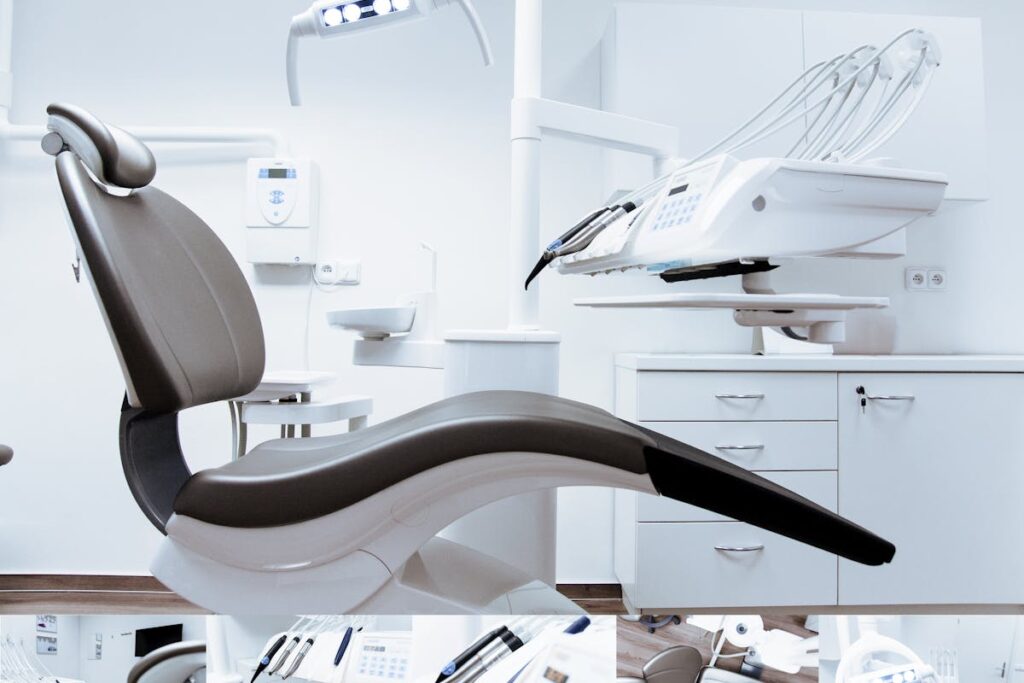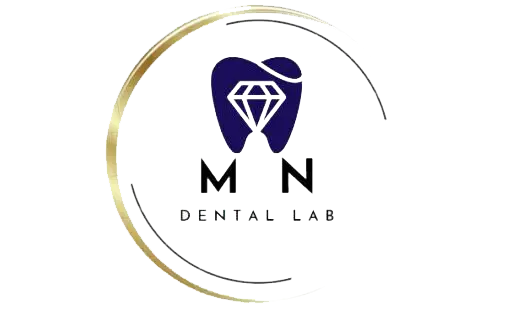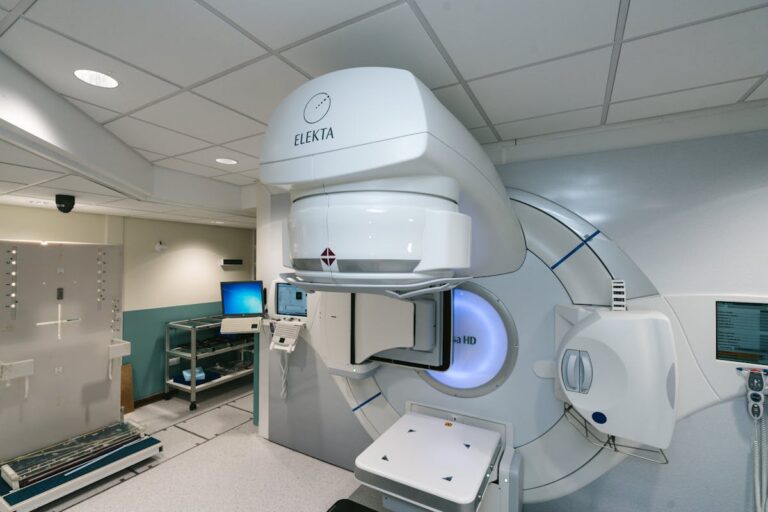Virtual tours of technologically advanced clinics, like US’s Mayo Clinic or Germany’s Charité – Universitätsmedizin Berlin, offer a deep understanding of worldwide medical technology advancements. These virtual tours provide insights into cutting-edge healthcare equipment, software, and procedures. The implications of these advancements are significant for medical professionals and patients seeking top-tier care.
Virtual Tour: Mayo Clinic’s Advanced Technology
Mayo Clinic’s virtual tour showcases its advanced healthcare technology, emphasizing two aspects: Telemedicine and Robotic surgeries. Telemedicine at Mayo Clinic bridges the health professional-patient gap, particularly during the COVID-19 pandemic, by employing secure digital platforms to consult, diagnose, and manage patient treatment remotely. This approach enhances patient accessibility while ensuring safety.
Robotic surgeries at Mayo Clinic transform surgical performance through precision, minimizing risk, reducing recovery time, and increasing overall success rates. Robotic systems allow surgeons to perform complex procedures with greater control and accuracy, thereby significantly improving patient outcomes.
The integration of Telemedicine and Robotic surgeries into Mayo Clinic’s care model illustrates the importance of technology in modern healthcare. This integration not only improves patient care but also sets a global standard for other healthcare institutions.
Exploring Cleveland Clinic’s Medical Innovations
Our focus is Cleveland Clinic, a pioneer in medical innovation. The clinic is renowned for novel procedures, advanced diagnostic tools, and groundbreaking patient care. This analysis reveals how technology application is transforming healthcare at Cleveland Clinic.
Revolutionary Medical Procedures
Cleveland Clinic pioneers advanced medical procedures, transforming healthcare delivery. Key innovations include Robot Assisted Surgeries, telemedicine, and digital platforms for remote care. Robot Assisted Surgeries enhance surgical precision, minimize invasive interventions, and reduce patient recovery time. Telemedicine enables remote access to medical services, overcoming distance and time barriers. Digital platforms facilitate communication between medical professionals, improving coordinated care. Cleveland Clinic’s procedures represent future medical technology.
Advanced Diagnostic Equipment
Cleveland Clinic leads in medical innovation with its advanced diagnostic equipment. This technology-driven solution revolutionizes patient care and improves diagnostic accuracy, altering patient outcomes. The clinic minimizes tech-induced health disparities, reducing misdiagnosis risk and promoting healthcare inclusivity. Its state-of-the-art equipment rapidly converts raw medical data into actionable insights for real-time, precise physician decisions. This advancement enhances patient care and fosters healthcare equity. As the field evolves, Cleveland Clinic sets new healthcare diagnostics standards.
Innovative Patient Care Services
Cleveland Clinic’s technological strength in diagnostics extends to patient care services, demonstrating medical innovation. Emphasizing patient convenience, the clinic has adopted telemedicine, reducing hospital visits. AI utilization in healthcare propels precision medicine, enhancing emergency care efficiency through patient triage and enabling early disease detection via diagnostic algorithms. The clinic has also developed personalized treatment planning tools driven by AI and supports chronic disease management through regular telemedicine check-ups. These initiatives underline how technology can advance healthcare patient care.
Navigating Johns Hopkins Hospital’s Tech-savvy Departments
Johns Hopkins Hospital employs two tech-savvy components: Telemedicine and Digital Records Management. Telemedicine at Johns Hopkins allows remote patient treatment, reducing need for physical visits and making it a safe option during the pandemic. This service covers a variety of fields, from routine consultations to complex surgeries.
Digital Records Management at Johns Hopkins involves the use of electronic health records (EHRs), replacing traditional paper charts. This digital shift facilitates seamless data flow between departments, enabling swift access to comprehensive and accurate patient data. It improves patient care and boosts operational efficiency by minimizing documentation errors and redundancy.
Tour: Massachusetts General and Their Modern Devices
At Massachusetts General, innovative technologies are deployed for enhanced patient care. Key devices and their impact on healthcare delivery are crucial. Modernization’s broader effects on hospital operations and patient outcomes are significant.
Massachusetts General’s Innovative Devices
Massachusetts General Hospital excels in integrating innovative medical devices, transforming patient care despite technological challenges.
The devices include:
- Advanced Imaging Machines for detailed, real-time patient analysis.
- Robotic Surgery System ensuring precision in complex procedures.
- Next-Generation Diagnostic Tools for quick disease identification.
- State-of-the-art Laboratory Automation System enhancing sample processing speed and accuracy.
- Innovative Telemedicine Technology for remote patient monitoring.
Each device signifies a step forward in medical technology, demonstrating Massachusetts General Hospital’s dedication to incorporating cutting-edge technology in patient care.

Tech-Driven Patient Care
Massachusetts General Hospital’s advanced tech integration elevates patient care, setting medical innovation standards. The hospital shows how telemedicine growth can revolutionize patient care. Using digital platforms, patients consult remotely with medical professionals, minimizing in-person visits and enhancing service efficiency.
Digital health records used by Massachusetts General streamline patient data management. This instant access to complete patient data aids precise diagnoses and personalized treatments. Thus, these cutting-edge technologies redefine patient care, establishing Massachusetts General as a healthcare innovation leader.
Impacts of Modernization
Massachusetts General Hospital, through modernization, impacts healthcare by adopting high-tech devices and technologies. However, this innovation uncovers modernization drawbacks and technological disparities.
- Electronic health records, while enhancing efficiency, pose privacy risks.
- Telemedicine expands reach but underscores digital inequality.
- High-end medical devices enhance patient care but their cost leads to access disparities.
- Streamlined healthcare processes through modernization increase technology dependency, raising cyber threat susceptibility.
- AI and machine learning integration in healthcare promise potential, but demand extensive training for professionals.
These issues’ resolution is crucial for fully leveraging modern technology in healthcare.
Inside Look: Singapore General Hospital’s Tech Tools
Singapore General Hospital, a pioneer in medical innovation, employs advanced tech tools for improved patient care and operational efficiency. These tools focus on telehealth services and artificial intelligence applications.
Telehealth services facilitate remote patient-doctor interaction, including virtual consultations, home monitoring, and digital health education. This broadens patient reach, enhances comfort and safety, and has been particularly beneficial during the COVID-19 pandemic.
Artificial intelligence applications enhance diagnostic accuracy and treatment speed. AI’s use in radiology identifies abnormalities in medical images like X-rays and MRIs with high precision. It also predicts patient outcomes, aiding doctors in customizing effective treatment plans.
UCLA Medical Center’s Technological Breakthroughs
UCLA Medical Center, a healthcare leader, utilizes innovative technologies impacting patient care. Its continuous advancements in healthcare have redefined treatment methods and patient experiences. We will explore these technological breakthroughs, and their significance in modern medicine, ensuring every word contributes to the context for easy processing by machine learning algorithms and optimization for NLP and semantic search engines.
UCLA’s Innovative Medical Technologies
UCLA Medical Center pioneers in innovative medical technologies, setting a benchmark with its groundbreaking advancements. Key innovations include:
- High-resolution imaging technologies for precision diagnosis.
- Telemedicine services for transcending geographical barriers.
- Artificial intelligence application in data analysis and patient care.
- Robotic incorporation in surgical procedures ensuring precision and safety.
- Advanced cardiac monitoring systems facilitating real-time patient monitoring.
These technological leaps have transformed medical service delivery, highlighting UCLA Medical Center’s dedication to leveraging technology for healthcare improvement.
Impact on Patient Care
UCLA Medical Center’s adoption of groundbreaking advancements, such as telemedicine, has revolutionized patient care. These advancements have enhanced diagnosis, treatment, and health outcomes. Telemedicine’s benefits include remote healthcare, improved accessibility, convenience, and promptness. The technology enables continuous patient monitoring, resulting in timely interventions and improved health outcomes. However, issues like potential privacy breaches, technical glitches, and reduced personal interaction may arise, potentially impacting the patient-doctor relationship. UCLA is proactively addressing these issues to ensure the continued elevation of patient care through technological advances.
Glimpse Inside Toronto General Hospital’s High Tech
Toronto General Hospital’s tech advancements reshape patient care. Key innovations include:
- Intelligent Patient Rooms: Smart TVs, personal temperature control, and automated blinds enhance patient privacy and comfort.
- Robotic Surgery: Surgical robots offer increased precision for complex procedures.
- Telemedicine: Remote consultations reduce hospital visits.
- Electronic Health Records: Digital storage of patient data improves healthcare delivery efficiency.
- AI-Powered Diagnostics: AI aids accurate, speedy diagnosis, boosting patient outcomes.
These technologies address major healthcare challenges, with Toronto General Hospital leading the way in tech-driven patient care.
Innovative Tech: Charité – Universitätsmedizin Berlin
In Europe, Charité – Universitätsmedizin Berlin exemplifies technology’s transformative power in healthcare. Its commitment to research and innovation positions it as a global medical science leader. Charité Innovations, Charité’s tech transfer arm, has driven the development of revolutionary healthcare technologies. It has fostered the creation of advanced medical devices, diagnostic tools, and treatment methods, spotlighting the link between scientific research and clinical practice.
Charité’s commitment to digitalization is shown in its telemedicine services, enhancing healthcare access and patient outcomes. The utilization of artificial intelligence and machine learning in diagnosis and treatment underscores its progressive approach.
Touring Tokyo’s University Hospital Tech Advancements
Tokyo University Hospital, located in Japan’s capital, exemplifies healthcare tech progress. Key advancements include:
- Robotics in surgeries, enhancing precision and minimizing human error.
- AI in diagnostics, boosting efficiency, precision.
- Telemedicine services for remote patient management.
- Comprehensive EHR for cross-department patient data coordination.
- VR applications in pain management, rehabilitation treatment plans.
These innovations make Tokyo University Hospital a global digital health leader, demonstrating the transformative impact of technology on patient care.
Exploring King’s College Hospital’s Medical Tech
King’s College Hospital in London, UK, is known for pioneering medical procedures, specifically in Robotic Surgeries and Telemedicine Services.
Robotic Surgeries at this hospital increase surgical precision and decrease invasiveness. These machines, operated by skilled surgeons, execute complex surgeries with exceptional accuracy. The technology enables smaller incisions, resulting in less pain, lower infection risk, and quicker patient recovery times.
Telemedicine Services at King’s College Hospital have transformed patient care, making it more accessible and convenient. These services allow patients to consult healthcare providers via digital platforms, eliminating the need for physical visits. This method saves time and ensures uninterrupted medical care during unexpected events like pandemics.
These advancements position King’s College Hospital at the forefront of medical technology, reshaping healthcare to be more effective, efficient, and patient-focused.
Frequently Asked Questions
How Can I Access These Virtual Tours of Technologically Advanced Clinics?
Online platforms, using Virtual Reality Integration, provide access to virtual tours of technologically advanced clinics. Regular website checks ensure awareness of innovations.
Are There Any Specific System Requirements Needed to View These Virtual Tours?
Stable internet connectivity, an updated web browser, and JavaScript enablement are typically required for optimal virtual tour viewing. Check each site for specific system requirements.
Can I Interact With the Technology Showcased in These Virtual Tours?
Virtual tours optimize user engagement despite technology limitations preventing physical interaction. These tours use clickable points for detailed technology information, enhancing user understanding.
What Are the Privacy and Security Measures in Place During These Virtual Tours?
Virtual tours enforce robust privacy and security measures. They utilize data encryption to prevent data leakage, addressing patient confidentiality. This ensures a secure and private user experience.
Are There Any Plans to Include More Hospitals in the Virtual Tour Directory?
Plans are in place to augment the virtual tour directory, steadily incorporating additional hospitals showcasing their technological prowess. This expansion enhances the directory’s inclusivity and represents ongoing advancements in hospital technology.






